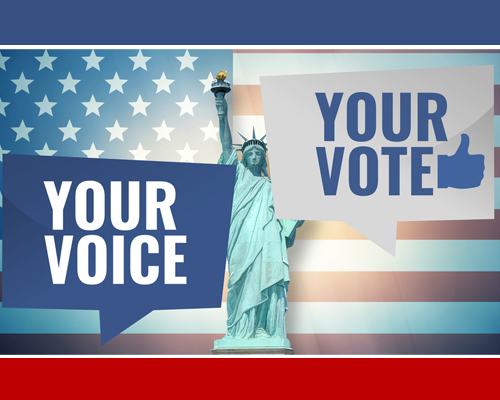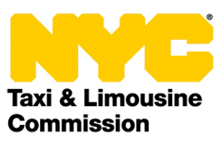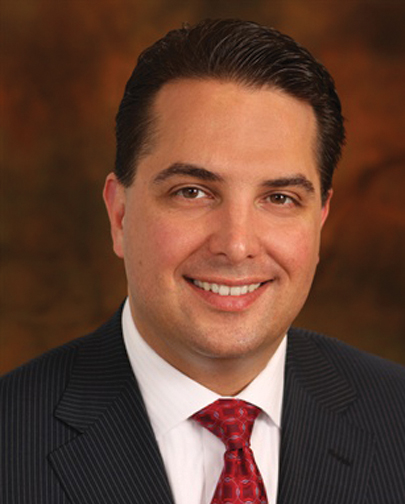By Matt Daus
New York City voters will head to the polls on June 22 to make their voices heard (although early voting is currently underway) on how NYC moves forward following the pandemic. Every citywide office is on the ballot, including mayor, but the mayoral field is clearly commanding much of the headlines as Bill de Blasio wraps up his last term. The leading Democratic contenders currently registering in the polls are Eric Adams, Shaun Donovan, Kathryn Garcia, Ray McGuire, Dianne Morales, Scott Stringer, Maya Wiley, and Andrew Yang. In addition, there are two Republican candidates: Fernando Mateo and Curtis Sliwa. The polls have been all over the place, once dominated by Yang are now being lead by Adams and Garcia. Regardless of who wins, this successor will have their hands full.

Among the many policy decisions the new mayor must make will be those affecting transportation—or, as it has been variously referred to by the candidates, the “central nervous system,” “heartbeat,” and “lifeblood” of the city. From busways, bike lanes, and Open Streets to traffic congestion, aggressive emissions and climate-change goals, and Vision Zero, the next mayor will shape the way people and goods move around the city for years to come.
Budgets will be tighter and tough decisions will need to be made about which transportation policies the city will pursue. The University Transportation Research Center (UTRC) at the City College of New York (of the City University of NY) will soon be releasing a report summarizing the candidates’ positions on key issues impacting transportation, which can be accessed here. UTRC released a similar report for the 2013 mayoral election.
About the Candidates
Eric Adams is the Brooklyn Borough President. Shaun Donovan is currently a senior strategist to the president of Harvard University and previously served as Secretary of Housing and Urban Development and director of the Office of Management and Budget under President Obama). Kathryn Garcia is the former Sanitation Commissioner under Mayor de Blasio. Ray McGuire is a former Vice-chair of Citigroup. Fernando Mateo is President of the New York State Federation of Taxi Drivers and spokesperson for the United Bodegas of America. Dianne Morales is Executive director and CEO of social-services nonprofit Phipps Neighborhoods. Curtis Sliwa is the founder and CEO of the Guardian Angels and radio-talk-show host. Scott Stringer is the current New York City Comptroller and previously served as Manhattan Borough President. Maya Wiley is Senior Vice-President of Social Justice and professor of urban policy at the New School and is former counsel to Mayor de Blasio. Andrew Yang is an entrepreneur and former presidential candidate in the 2020 Democratic primary.
Primary Issues for Transportation in NYC
Several mayoral candidates have offered transportation-specific policy agendas that, if realized even partially, would transform NYC. Yang has proposed an MTA takeover by the city and superblocks, while Stringer wants to be the “Bus Mayor” (his words) of a city “where buses roll by every six minutes with not a single car parked in the dedicated lane.” Garcia, the former Sanitation Commissioner, as part of her transport plan, would clear curb space by taking trash bags off the sidewalks and replacing them with sealed container. Among the mayoral candidates who have put out policy positions on transportation, most address buses and bikes as well as congestion pricing and the MTA. Nearly every candidate wants to upgrade and integrate the city’s subways, buses, and bike infrastructure, and serve the needs of all New Yorkers.

Street Design
Many candidates emphasize changes to the streetscape such as adding protected bike lanes and busways and expanding the Open Restaurants and Open Streets programs, which Mayor de Blasio recently made permanent. Dianne Morales wants to expand everything—bike lanes, busways, and pedestrian plazas across the city—and redesign the streets. Fernando Mateo, on the other hand, thinks the city needs more street parking and would evict Citi Bike docking stations from the streets to give the space back to cars. Donovan, Garcia, Morales, Stringer, and Wiley endorse Transportation Alternative’s NYC 25x25 challenge to reclaim 25 percent of the street space currently designated for cars (including three million on-street parking spaces) by 2025. A Yang administration would reclaim streets from cars and transform them into walkable, mixed-used public spaces with superblocks—a new urban-planning idea out of Barcelona that creates three-by-three blocks that restrict traffic to roads around the outside, while the inside is open to pedestrians and cyclists.
A Yang administration would also reclaim full control of the city’s subways and buses from the state-run Metropolitan Transportation Authority (MTA), vesting municipal control with the NYC Department of Transportation. Current City Comptroller Scott Stringer told a District Council 37 Forum that he has “crunched the numbers” and the city cannot take on the debt, making it impractical to take over the MTA—and McGuire concurred. Currently, the NYC mayor appoints a few MTA board members and the city owns the tunnels and tracks underground, but the state controls the MTA. Yang would fill the board with people who align with how the city’s residents get around and will best advocate for their communities. Separately, to modernize the city’s transportation system, Yang believes that the MTA must facilitate a better degree of usability and explore something similar to Mobility-as-a-Service (MaaS).
Cycling and Micromobility
Cycling and micromobility (including bikes, mopeds, and scooters) have become increasingly popular modes of transportation, but the city lacks the infrastructure to support these alternatives. In addition, many of the city’s 1,300-mile network of bike lanes remain unprotected from vehicle traffic, which raises safety issues. The Democratic candidates want to change that to varying degrees. Stringer's campaign website calls for a 425-mile, five-borough bikeway connected to greenways, while Wiley's campaign website calls for the creation of 300 miles of bike lanes. Also, Yang told Newsweek "I want it so that, when someone moves to New York City, they think, ‘Great! I don't need to own a car.’ One aspect of that is going to be making the city as bike-friendly as it possibly can be."
Congestion Pricing
In 2019, New York State passed congestion pricing legislation to charge vehicles a toll to enter Manhattan south of 59th Street to generate revenue for mass-transit. The specific details have yet to be revealed, and the project was delayed during the Trump administration. In March 2021, the Biden administration finally informed the MTA that it could submit an environmental assessment instead of an environmental impact statement. The next mayor will have some say in the matter, and many candidates—including Adams, Stringer, Wiley, and Yang—have said they will push to put the plan into action sooner rather than later. In testimony before the MTA during a fare hike hearing in December 2020, Adams said the city should “push to fast-track the implementation of Central Business District tolling … which has been projected to raise up to $1 billion annually in fees for the MTA and will pave the way for a $15 billion bond issue by the agency." Investing in public transit would help reduce the number of vehicles traveling in the Central Business District (CBD), which could create a more accessible transit system.
How This Could Affect Transportation Operators
The candidates have a general desire to increase alternatives to driving personal vehicles, such as expanding bus and bike lanes and installing related infrastructure. The expanded bus lanes would benefit operators who have buses in their fleets, but the focus on bikes could sabotage the interest of for-hire operators generally. In contrast to prior years when the sheer number of Uber and Lyft vehicles were viewed as the source of traffic congestion and other woes, none of the candidates has taken the position that there needs to be fewer for-hire vehicles (FHVs) on the road. If fewer people drive their own cars in the city, they will still need to get around, and not everyone is going to take a bike or bus.
New FHV licenses have been on pause since August 2018 with few exceptions for wheelchair accessible vehicles and battery-electric vehicles. Currently, the TLC has full authority to determine the number of new licenses that it will issue and whether any exemptions will be offered. In May, the TLC published proposed rules to eliminate the exemption for battery-electric vehicles. That hearing is scheduled for June 22—primary day. Stringer said he believes some kind of cap on for-hire companies, such as Uber and Lyft, should exist today, saying that he does not believe that unfettered competition helps drivers earn a living. Regarding livery/community car services, Adams said he believes NYC must take care of both drivers and base owners, and that the next city government needs to listen to industry voices and find a middle ground.
Even more importantly is what the candidates are not talking about, and I offer my suggestions here.
 Matt Daus of Windels Marx
Matt Daus of Windels Marx
Voting in 2021
This election will be the first where New Yorkers use ranked choice voting. In other words, voters can rank mayoral candidates in order of preference. In a field with so many Democratic candidates, this could make predicting a winner very difficult—money has been pouring into the race and the frontrunners have certainly been shifting (for example, where Yang was once the leader, he fell to fourth in a recent poll). However, that may not matter when it comes to some transportation issues because the eight major Democratic candidates all have very similar ideas about where their administration would take the city: more busways, more bike lanes, and more revenue for the MTA. Where they diverge is on the how aggressive the city should be in reclaiming street space from vehicles and their proposed approaches to assisting the taxi industry that was decimated by the unchecked growth of Uber and Lyft until recently and the more recent impact of the pandemic shutdown.
Early voting is underway now (June 12–20, 2021) and voters may also request an absentee ballot to vote by mail. To learn more about deadlines to register to vote, requesting absentee ballots, early voting hours and locations, ranked choice voting, and casting ballots, click here.
Side note: Daus hosted town hall-style video meetings with both Yang and Adams, which can be accessed on demand.
[06.16.21]

